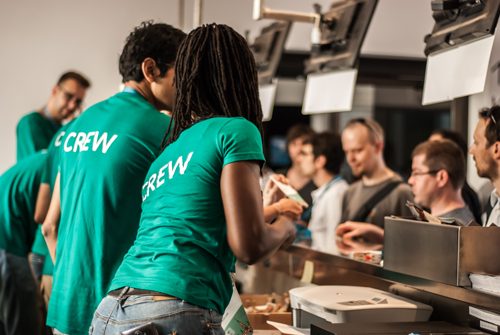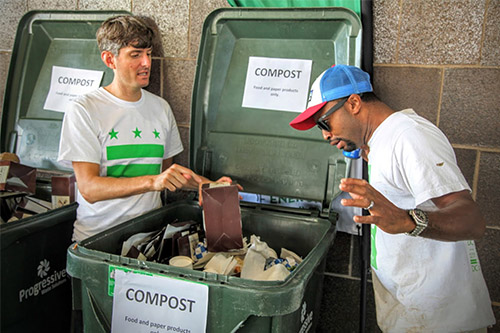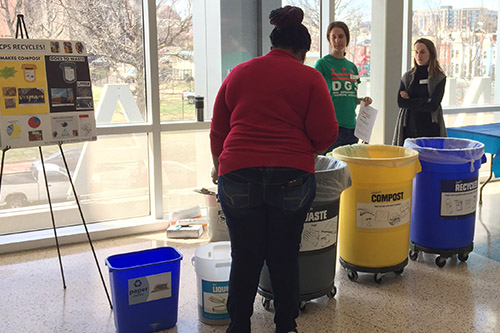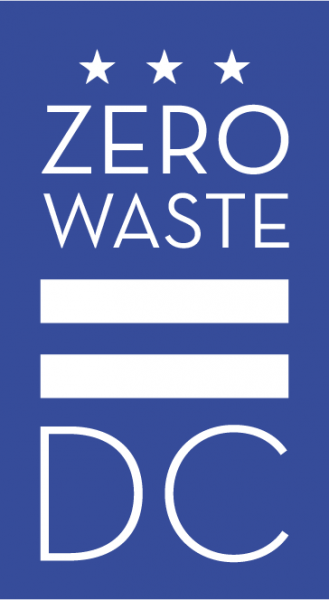Waste is often the last thing on an event planner’s mind. However, many attendees expect to have access to recycling and look for ways to reduce their environmental footprint. Incorporating waste minimization practices into an event has positive environmental, social, and financial impacts.
Zero Waste DC has created a short and easy-to-use guide to hosting zero-waste events. It includes tips for before, during, and after the event. Look through the guide as you plan your next event, and you’ll be helping the District reach its goal of diverting 80% of waste from landfills or incineration (including waste-to-energy) by 2032.
For additional waste reduction information for residents, businesses, District staff, and schools, please see below:
Residents

At-home events like parties are a great way to inspire colleagues, family, and friends to participate in zero-waste and reduced-waste practices.
-
Avoid single-use items where possible by using reusable plates and glassware.
-
Use cloth napkins as an alternative to paper napkins.
-
Educate your guests about your waste sorting system.
-
Download and print your own signs to clearly label your trash and recycling bins.
Businesses

In your invitations and advertisements, include your intention to have a zero-waste event. Consider choosing giveaways and swag that align with your zero-waste goals, such as reusable tumblers that guests can use during the event.
Special Events

The District of Columbia government provides essential municipal services in support of special events to ensure that events occurring in public spaces are conducted in a manner that protects public health and safety.
Event planners are required, at a minimum, to provide recycling for permitted special events (typically parades, walks, runs, bike rides, or festivals). The Special Events Planning Guide details permit requirements.
District Staff

District Government agencies and contracting officers are required to use Environmentally Preferable Products and Services (EPPS) to the “maximum extent possible and feasible.”
The District’s Sustainable Purchasing Program, part of the Office of Contracting and Procurement, has developed Sustainable Purchasing Guidelines in 14 categories, including office and event supplies. The guidelines can help you identify EPPS and provide detailed specifications for drafting the procurement documents.
When events involve food, it will be helpful to stress the zero waste goals with caterers or other food service providers early on. The District’s Food Service Ware Requirements and Foam Ban must be strictly followed.
Schools

The Department of General Services is responsible for a variety of activities designed to ensure that schools are healthy, safe places to learn, per the DC Healthy Schools Act. These include programs on waste diversion and waste diversion education. The DCPS Recycles! Program is designed to improve building operations, achieve cost savings, reduce waste, and preserve natural resources while teaching DC Public Schools students values and skills for a sustainable 21st century.
The program is standard practice throughout all school buildings. Anyone using the building, including summer programming, community events, and other events during off-school hours, is expected to comply with program standards.
Are you having an event in a DCPS building? Here’s a link to a step-by-step How-To Guide for Recycling at Events in DCPS Buildings. For help planning a zero-waste event or if you have any questions, please contact [email protected].

